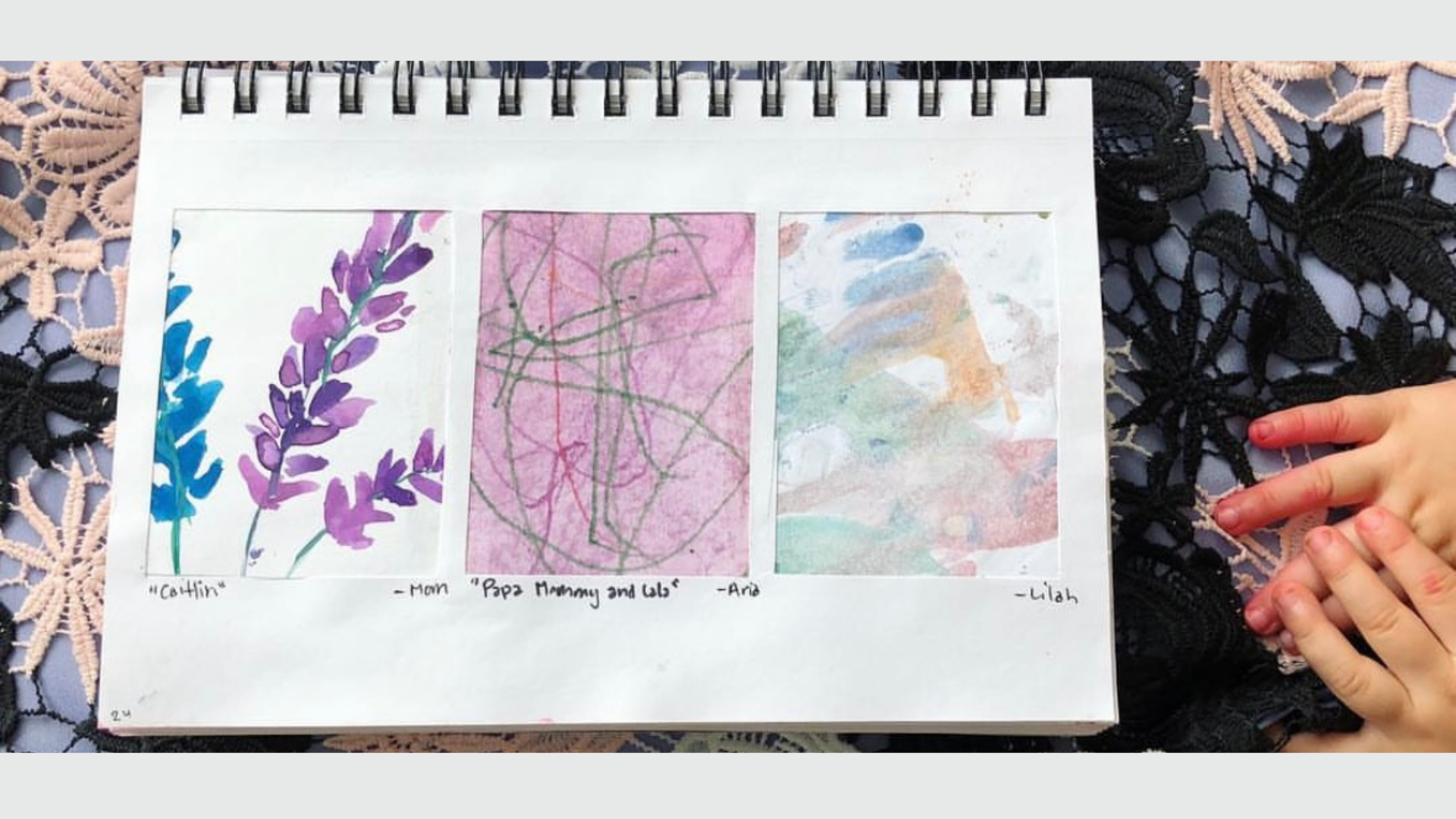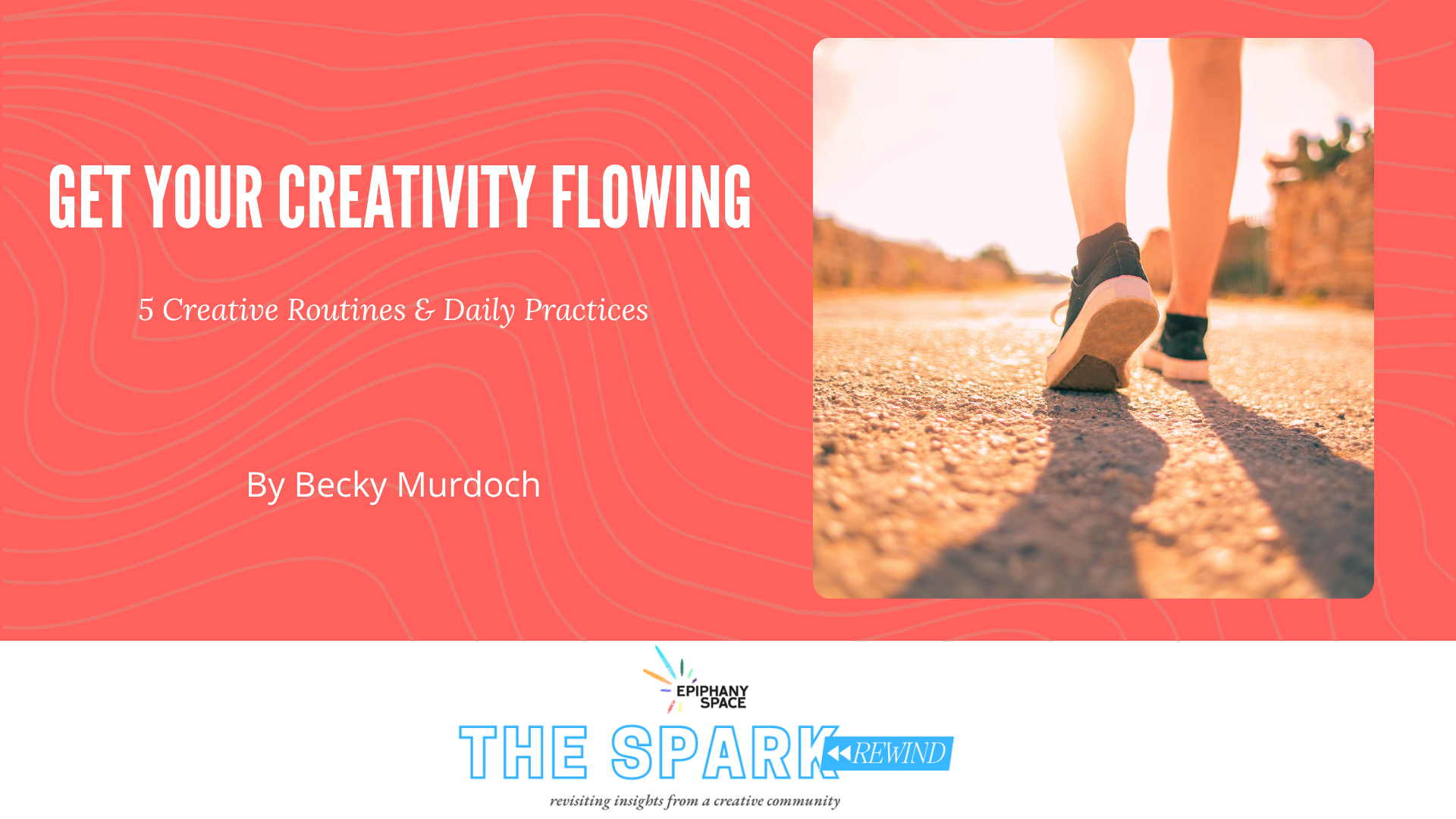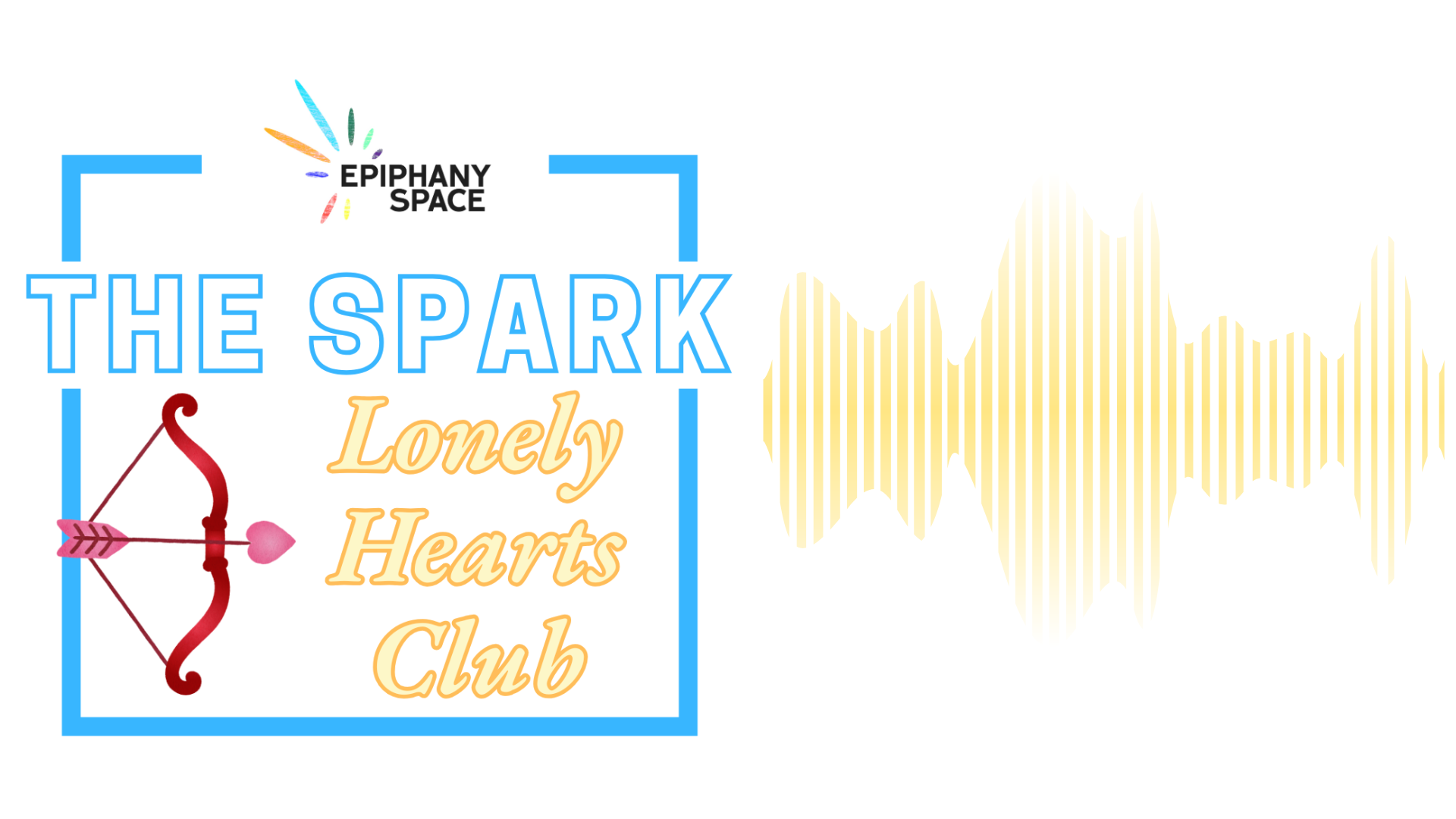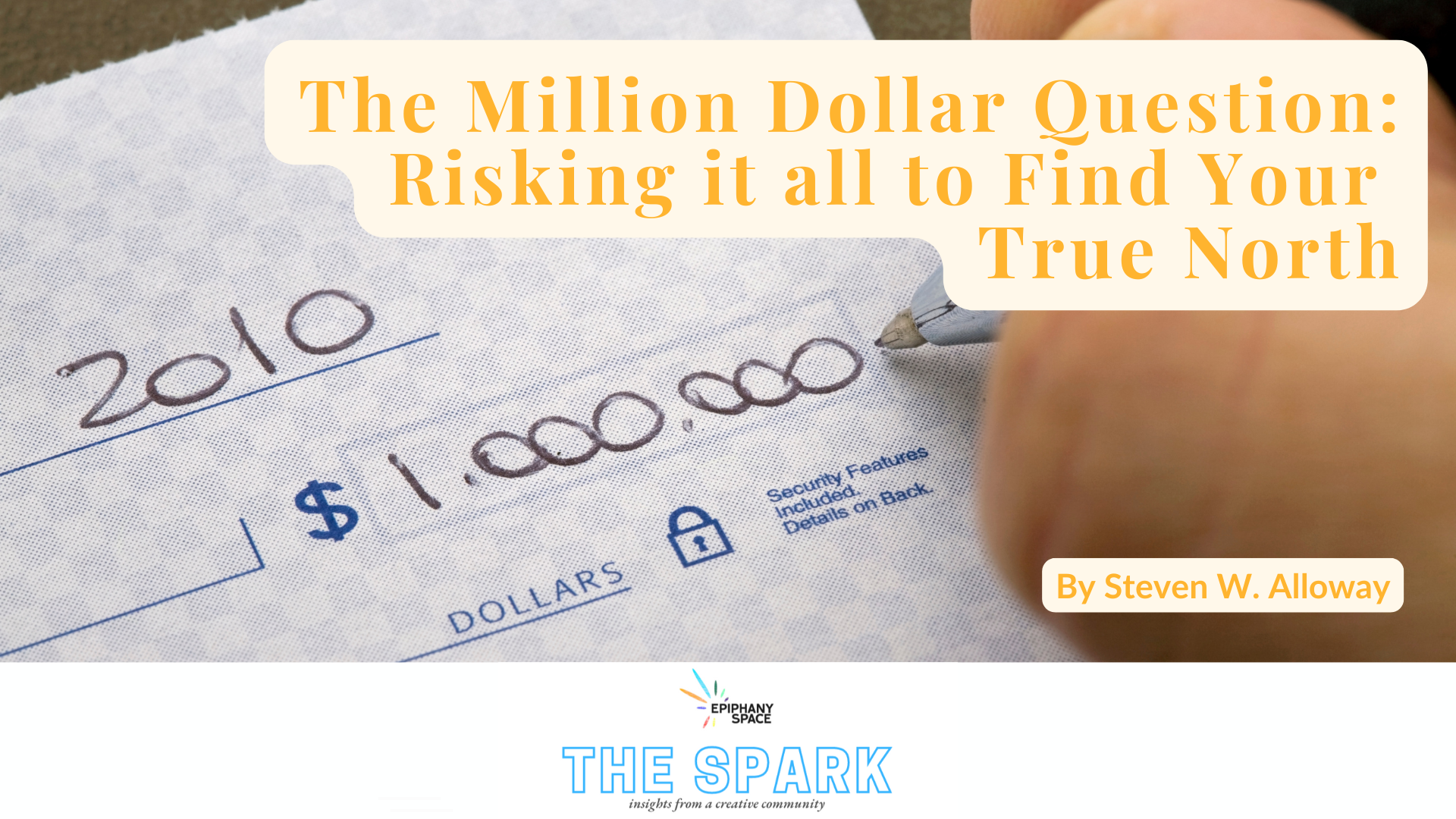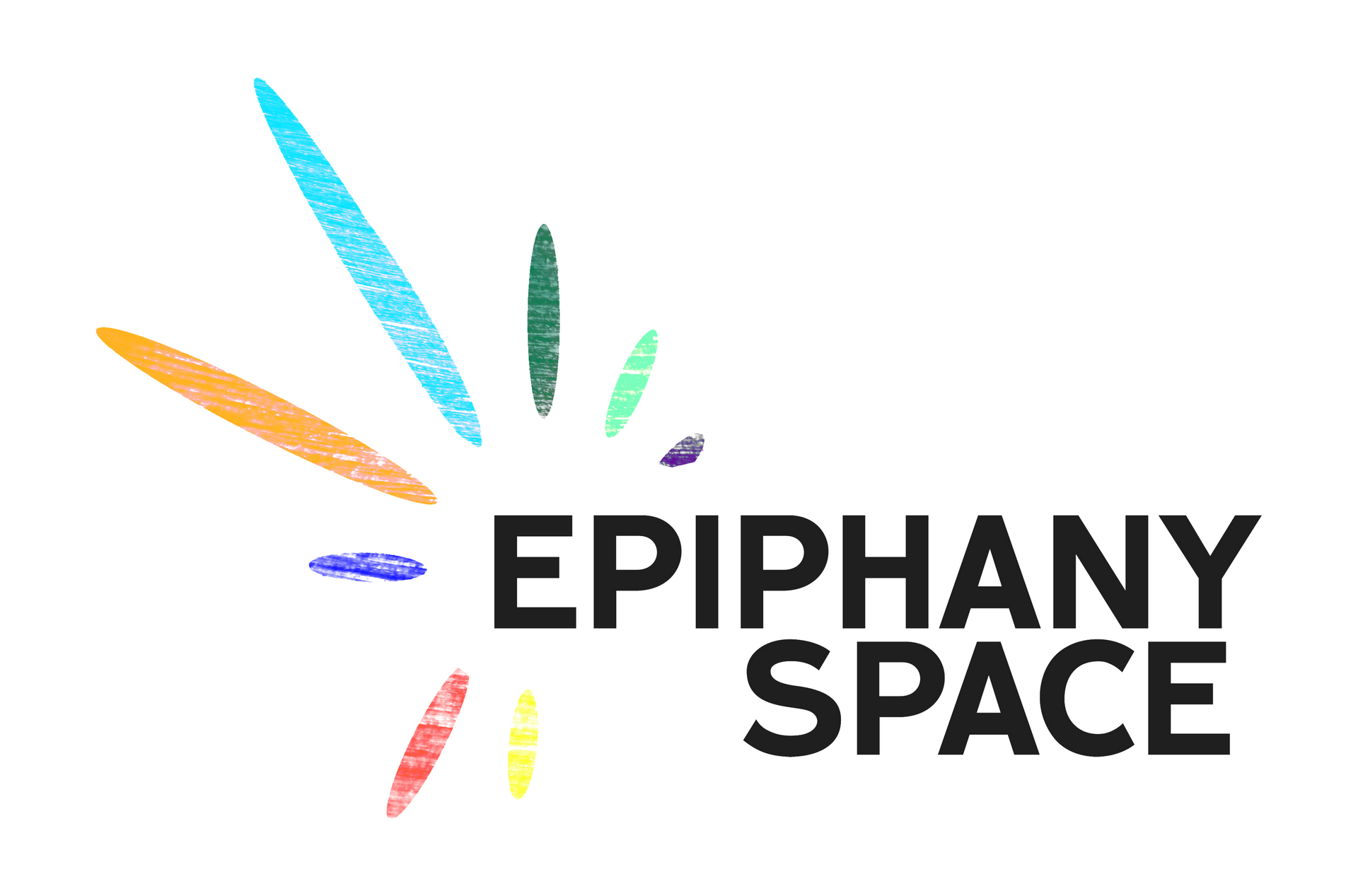Article
Blank Pages & Bad Paintings: Finding Freedom & Legacy in Creative Play
Blank Pages & Bad Paintings: Finding Freedom & Legacy in Creative Play
By Beth Dzhiganyan
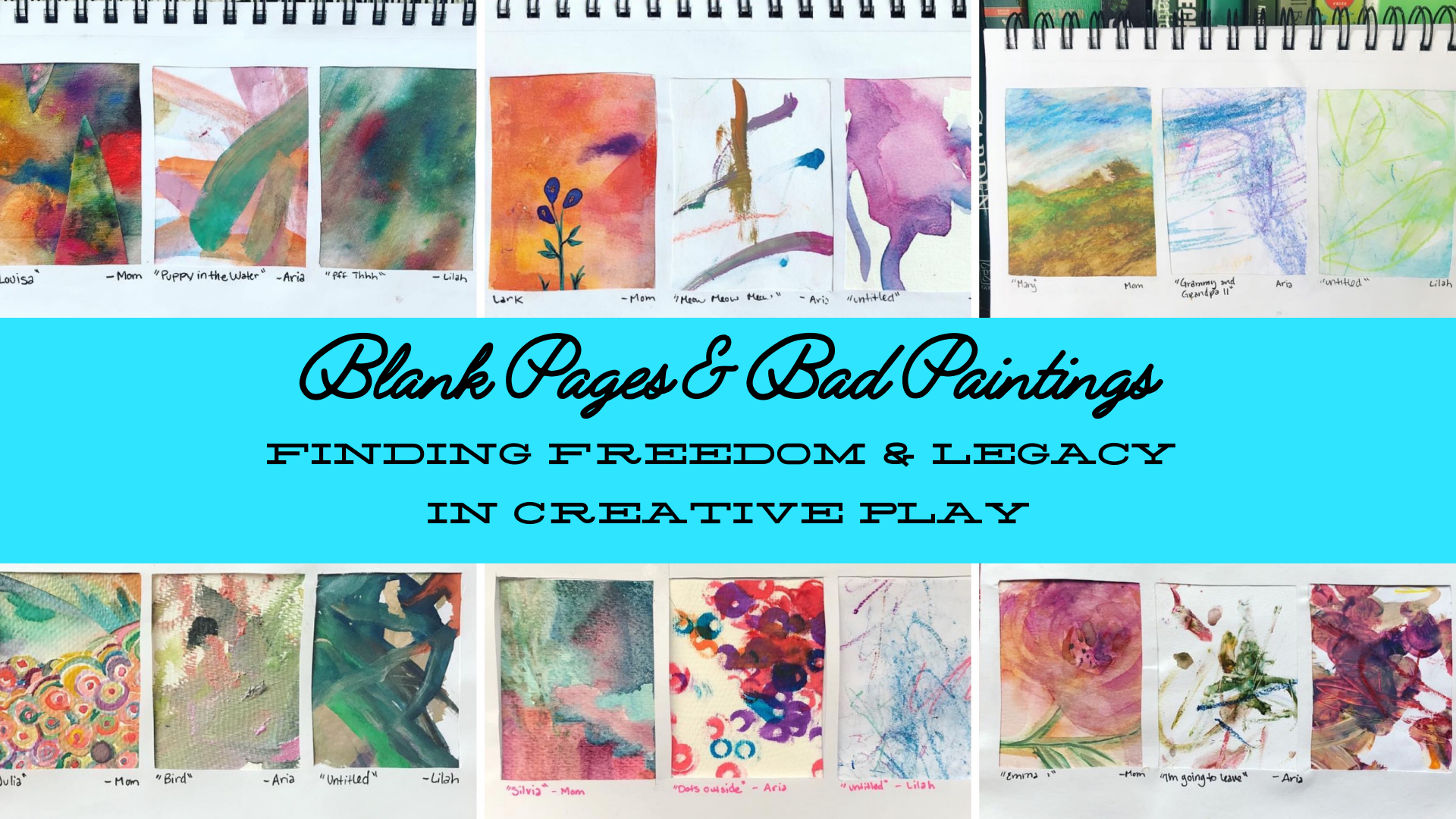
I have always loved this quote from Pablo Picasso, “Every child is an artist. The problem is how to remain an artist once we grow up.” At my most creative, I feel deeply connected to my inner child. Whether or not I am creating is actually a weirdly accurate gauge of my overall mental health. When the weight of the world feels heavy and dark, nothing gets made. Turns out, I am really bad at being a tortured artist. As a writer, I’ve found that it isn’t only the traumatic moments of life that freeze me up; the aftermath can leave me with a bout of resistance and writer’s block that are hard to come back from.
When I think about my childhood, I wonder how far back this goes. My parents are very creative people—at least for people who do not consider themselves creative. I think it’s because they are both teachers. Having two teachers for parents meant growing up surrounded by books and ideas. From my earliest memories, my brother and I would snuggle into bed and listen to our parents read The Chronicles of Narnia, Mrs. Frisby and the Rats of NIMH, Watership Down. They would read to us until their words became muddled and fuzzy with sleep. I would then jab them in the ribs with my elbow to wake them up so they would keep reading. I was a delightful child. It is perhaps no surprise that I began to think of myself as a writer before I even knew how to form letters on a page. Creativity felt inherent to me; it was how I saw myself, and what I loved most about myself. I think this is why when I experience bouts of creative block in my life, it feels like a disconnect from the core of who I am.
With adulthood, my life has become much more complicated, as it is wont to do. I have experienced seasons of creativity and joy, but waves of writer’s block and depression have pooled throughout, stunting me for months and years at a time. The worst writer’s block I have ever faced hit me in about 2016, after the birth of my second child, and it lasted several years.
I had imagined parenthood through a romantic filter-- playing classical music to trilingual toddlers with rosy, chubby cheeks who took long naps and spent their afternoons painting on easels in little mini berets, all while I wrote novels in my abundant free time. Well, my babies did have chubby cheeks, so I guess I was right about one thing.
Instead, I found myself in my early 30s, working from home full-time, surrounded by tiny havoc machines who never slept, had terrible taste in music, and every single thing they touched undoubtedly was spilled, splattered, and splashed across everything else. Absolute chaos ensued. I loved my family but felt like I was treading water all day, every day.
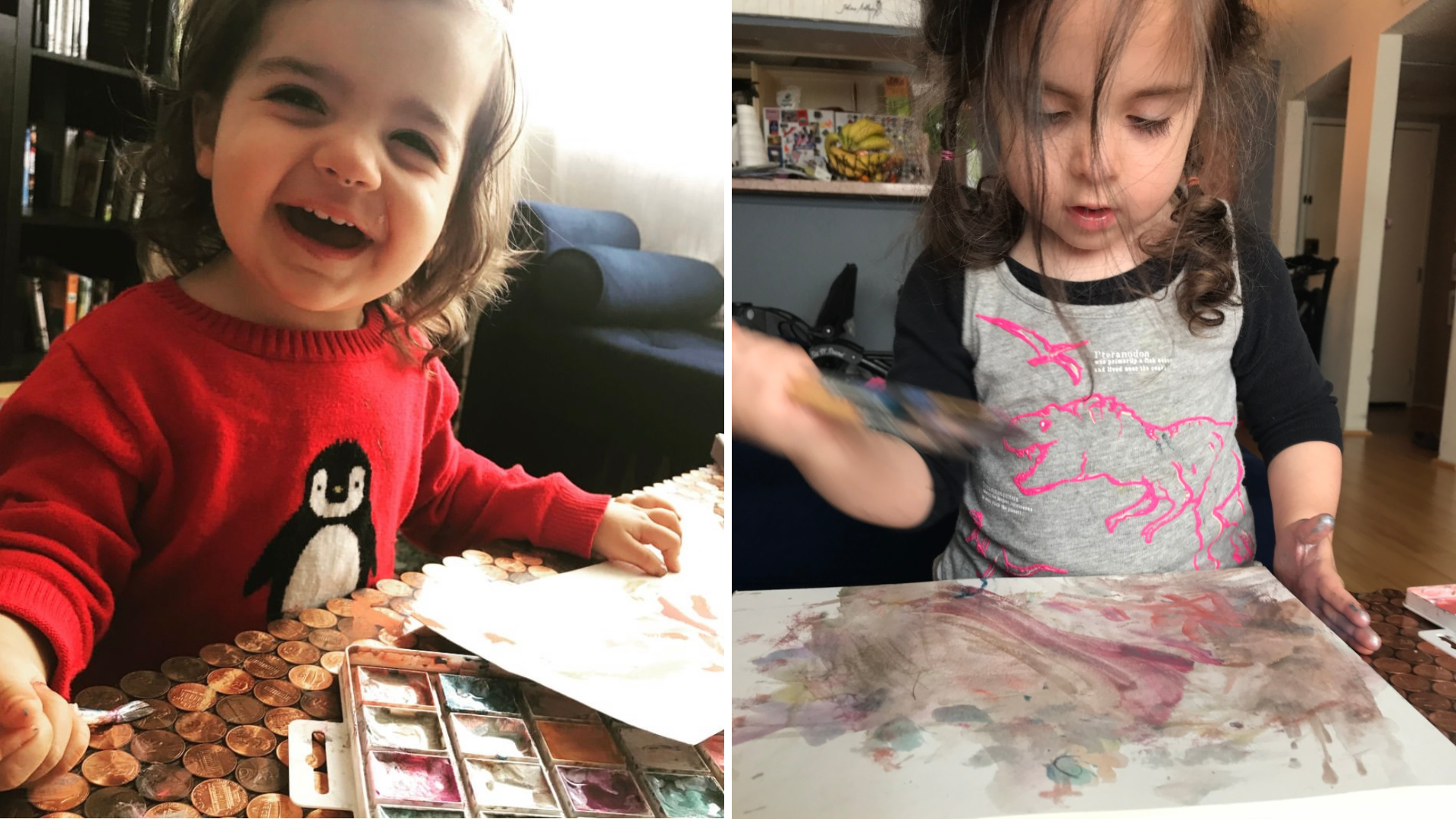
I thought about writing sometimes. A lot, actually. But I didn’t have the bandwidth for imagination and worried I’d never have an intelligent thought again. I was so exhausted. I loved much of motherhood, but I resented the cultural expectation that I should now find my identity in it. But I wasn’t writing. So, I wasn’t a writer. I didn’t know who I was, and I didn’t have the energy to imagine who I wanted to be.
Creative block is such a particular type of madness. I would get up extremely early in the morning before the kids woke, hoping to carve out some quiet space for myself. I’d open a notebook and stare at the blank page. Even if I tried to write a stream of consciousness, I never could get beyond, I am just so tired and I don’t know what to say. Then I would continue to stare blankly until a baby would start to cry, and the day would begin. There were hundreds of these days.
We aren’t all parents, but we do all face similar life-altering shifts in our expectations that feel stunting. Seasons when grief, heartbreak, and anxiety leave us staring blankly at a wall, or scrolling on our phones, too paralyzed to function. I don’t remember where I first found out about #The100DayProject, but undoubtedly it was on a day like that-- doom scrolling on my phone as one does, nursing a baby or trying to get back to sleep after nursing a baby. Just another hashtag, another project for people who seem to have it all together. People unlike me. Something about it stuck with me though. The project is so simple: “Choose a creative project, do it every single day for 100 days. Document it.”
On that particular day, the following thoughts hit me in quick succession: I used to be good at writing, but now I can’t write anything good. I am a writer, but I cannot write anything at all. But… I am a bad painter. I can absolutely paint badly. Any day of the week, I can successfully be a bad painter.
I have always loved the visual arts-- painting, drawing, mixed media, all of it. I’ve experimented with it from time to time, occasionally even exhibiting pieces. The thing is, I’m not very good at it. I’ve always been vaguely bitter about this, to be honest. But in that moment, the idea struck me as pure relief. Perfectionism is crippling. But to make something and not have any expectation that it be anything but made? To not expect to be good at creativity but to let creativity be the medicine itself? This sounded like freedom.
I sat my children down-- Aria was three then, and Lilah was about a year and a half. I laid it out like a business proposition to tiny incompetent colleagues. For 100 days, we would be making art together. Every. Single. Day. It would be play, but it would also be a discipline.
Watercolor, acrylic, crayons, and pastels. Markers and stamps and stickers. Some days, we painted with food coloring and shaving cream. One day we painted with watercolors on baby wipes (unused baby wipes, it needs to be said). Finger paints. Collage. We found objects on nature walks and dipped them in paint to stamp and brush with, creating different textures. We pressed flowers. We played with markers and Chalk. We made so many messes that left me too tired to clean up. We had a lot of fun playing, even on those days when the messes added stress. More importantly, it was healing.
I mounted our art into notebooks and put them into frames. Not just the children’s but mine too. They didn’t symbolize good art; they symbolized the freedom to play. The freedom to be bad at things and enjoy them anyway. I think it’s the perfectionism that kills our inner child artists. As children, it’s the process that delights us. We know this, but it is still so hard to break through when we are suffering from blocks and resistance. Now, one of my recommendations to myself and to others is to get out of my medium. Go have fun being bad at something for a while. Go fail spectacularly. It can be so much fun.
It took time, but I did start writing again, though I certainly wasn’t immediately good at it. I was so rusty it hurt. I started writing with prompts and a timer, then gradually moved on to short stories. I gave myself the freedom to create “shitty first drafts.” Eventually, I published one of those rusty short stories, completed a novel, and began working on my second. I enrolled in an MFA program to continue working off that rust. I still get writer’s block and I still can be very hard on myself when it comes to my writing, just as I get depressed and anxious at times. Now, along with therapy and meds, I keep my home stocked with art supplies as another aspect of my self-care. I still have a lot of bad paintings to do.
